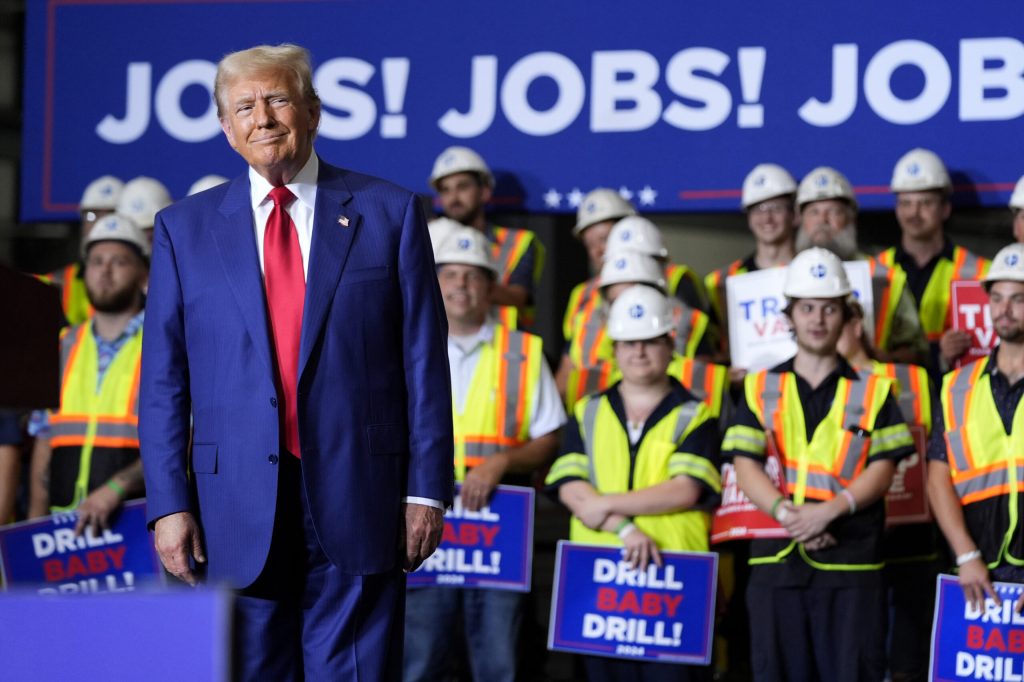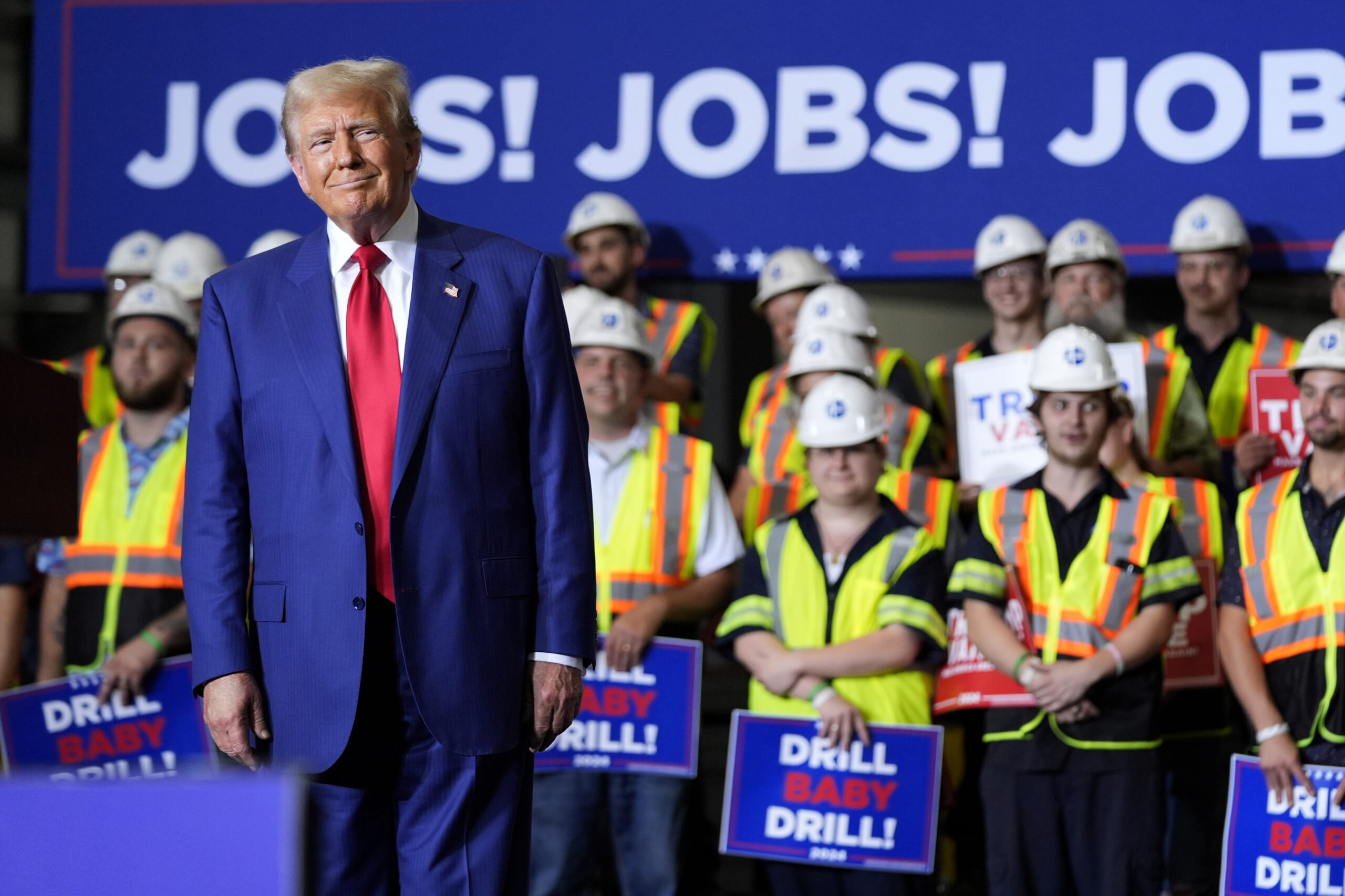
Chaco Canyon Threatened by Policies of Trump Administration

New Mexico lawmakers and tribal leaders are calling for the protection of Chaco Canyon, an Indigenous archaeological and historical site in the state, as Republicans attempt to repeal federal land protections surrounding the area.
The Bureau of Land Management within the US Department of the Interior (DOI) has begun the “process of revoking” a federal land order that halted new oil and gas leases for 20 years around the archaeological site, according to New Mexico Democratic Senator Martin Heinrich and other lawmakers. Twenty-five Indigenous and conservation groups wrote a letter to DOI Secretary Doug Burgum on Monday, June 23, urging the department not to abandon its protections of Chaco Canyon.
In a separate letter sent to Burgum, 38 local New Mexican politicians said opening the land to drilling would desecrate cultural sites and pose public health risks to Indigenous communities.
“Over a thousand years ago, our Pueblo ancestors called Chaco Canyon and the Greater Chaco Region home, creating one of the most magnificent civilizations in North America,” said Charles Riley, governor of the Pueblo of Acoma, one of the pueblos with ties to Chaco Canyon, in a June 23 press release.
“Today, we stand at a crossroads where we must choose between short-term energy profits and the permanent preservation of our most sacred ancestral homeland,” Riley continued.
The Bureau of Land Management gave Tribal leaders 19 days’ notice to consult with them regarding Chaco Canyon, as opposed to the 30 days stipulated in the DOI procedural code, according to Heinrich’s letter.
In a May 31 editorial for the Santa Fe New Mexican, Governor Riley wrote that the DOI cited Trump’s “Unleashing American Energy” executive order, which encourages “energy exploration” on federal lands, as impetus for its recent attempts to revoke protections. During the consultation meeting with tribal leaders, no formal proposal was shared; according to Senator Heinrich’s letter, the lack of information shared with tribal leaders made it impossible for them to counter the DOI’s efforts. A representative from the Pueblo of Acoma has not yet responded to Hyperallergic’s request for comment.
Under the Biden Administration, DOI Secretary Deb Haaland, the first Native American to hold a cabinet position, established a 336,404-acre buffer zone of federal lands within a 10-mile radius of Chaco Canyon in an action known as a “withdrawal.” Representatives from 19 pueblos in New Mexico supported the action, citing the protection of cultural significance.
House Republicans introduced a one-sentence bill in January seeking to completely overturn the withdrawal under the name “Equal Opportunities for All Act.”
A spokesperson for the DOI declined to respond to any questions and did not confirm whether or not the administration planned to revoke Chaco Canyon’s Biden-era land protection.
Chaco Culture, which includes Chaco Canyon National Historical Park and Aztec Ruins National Monument, was named a UNESCO World Heritage Site in 1987. The network of archaeological sites once operated as a major center of the Chacoan culture, also referred to as “ancestral Pueblo” culture, between the years 850 and 1250. Chacoans built multi-story homes, as well as public and ceremonial buildings, and linked complexes with roads — remarkable achievements, according to UNESCO, given the hostile climate of Northern New Mexico.
According to the land preservation organization New Mexico Wilderness Alliance, about 90% of the federal lands around the historic site have already been leased to oil and gas companies. The Biden-era land protections wouldn’t affect existing contracts and would not apply to privately owned land, including land owned by the nearby Navajo Nation.
The National Congress of American Indians (NCAI), a nonprofit representative organization, adopted a resolution on Monday, June 23, calling for Congress to pass a bill that will permanently enforce the present withdrawal, citing Chaco’s “profound spiritual significance for Pueblo people across the Southwest.” The resolution also encourages the federal government to engage in good-faith consultation with Tribal Nations.
“[The withdrawal] was carefully designed to protect our sacred sites while respecting existing lease rights and Navajo Nation sovereignty,” Riley said in his Monday statement. “Any attempt to rescind these protections would be a betrayal of this good-faith partnership.” A spokesperson for the Navajo Nation has not yet responded to Hyperallergic.
After David Bernhardt, the previous Trump-appointed DOI secretary, visited the Chaco Canyon in 2019, the administration delayed oil and gas leases in the area. Bernhardt said he gained a “greater sense of appreciation” for the cultural site.
Riley added, “For the Pueblo of Acoma, and sister Pueblos and Tribes that maintain connections to Chaco Canyon, this fight is about our identity, our spirituality, and our responsibility to future generations.”